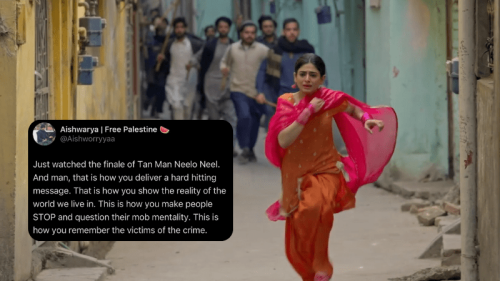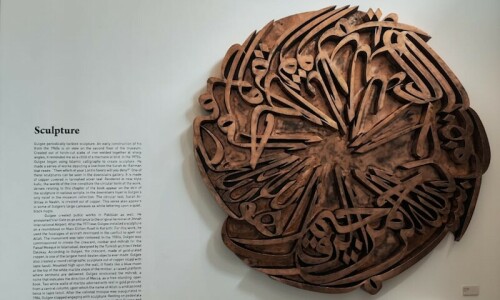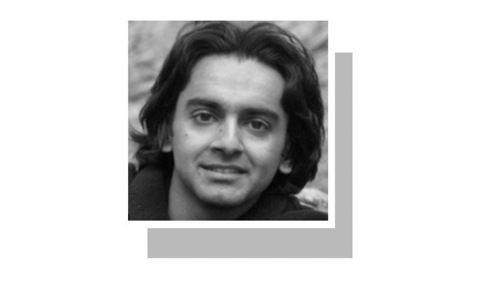Zehra Nigah and Intizar Husain -- Photo By Sara Faruqi/Dawn.com
By Umair Khan
The session titled ‘Zehra Nigah on Poetry and Translation’ turned out to be ‘Zehra Nigah’s poetry and its translation,’ primarily because of the affinity of the other two panellists, Intizar Husain and Samina Rehman, with the poet and secondarily because of the mesmerising effect Nigah’s poetry had on the audience. Progressive poet and scriptwriter, Nigah used to recite in mushairas alongside Faiz, Faraz and Jalib. Besides her writing, she is known for her spellbinding rendition of verses about the compulsions and compromises of being a woman. The session revealed her to be a raconteur par excellence. She spoke as she writes: with grace and delicate humor.
At the start of the conversation, Husain introduced Nigah with reverence towards her work. He confessed to being one of her earliest fans, shared his concerns about the time when she left Pakistan for some duration, highlighted the metamorphosis her poetry has undergone from her early ghazals to the recent nazms and expressed his amazement at the fact that her poetry is still creatively refreshing.
Nigah recalled the time when she started writing poetry and the kind of social pressure she and her family faced at her attending mushairas. At a time when women poets were few and far between and being a shayra was not only taboo but women were thought incapable of writing serious poetry, Nigah was accused of stealing her grandfather’s poetry. To one such accuser she replied “even if I steal the poetry of my grandfather, it is none of your business. I do not steal your grandfather’s poetry.” To the amusement of the audience, she told them about a women’s mushaira in Karachi in the 1950s in which male poets were behind the curtain. She was advised by Jigar Muradabadi not to use feminine pronouns in her poetry, rather to use the neutral hum. Relishing old memories, Nigah also recalled a mushaira where the host introduced her as a poet who has eclipsed several others. Considering this remark an insult, all the other poets (who were all men) except Habib Jalib walked out. However, after she and Jalib kept the audience entertained with their poetry, the other poets returned to the stage.
Husain applauded Nigah’s poems on contemporary sociopolitical issues as revolutionary even though her expression is mellow and employs symbols from everyday life. The fact that her poetry never screams revolution is exactly what makes it revolutionary.
Rehman agreed with Husain that Nigah’s narrative is delicate and sophisticated but at the same time representative of a kind of resistance. In her case, the personal is political because she is the voice of a humanist and her perspective is universal, Rehman added.
Nigah then recited some of her poems. One of these, “Mein Bach Gai, Maa” reflects the poet’s emotions for the unborn girl child. It forces the readers to abhor the chauvinist traditions that result in female feticide. In this poem, the baby in the womb convinces her mother that she is lucky not to be born. In another poem she describes the anguish of a young girl who cannot get an education because her school has been blown up by terrorists. In a poem titled “Huddod” she looks at the infamous case of the blind young woman Safia Bibi, a rape victim who was prosecuted for her pregnancy while the rapist was acquitted.
It is notable that Nigah has only three slim volumes of poetry: Shaam ka Pehla Taara, Waraq and Firaq. The discussion then turned towards the second half of the topic, literary translation. Answering Rehman’s question about whether there can be satisfactory translations, Husain said that prose can easily be translated but it is difficult to translate poetry. To this, Nigah added that ghazals are more challenging to translate but nazms are manageable if the translator is a poet and knows both languages well.
Although the panellists were of the opinion that translation of literary texts in general and that of poetry in particular seems a difficult challenge they also held that in rare cases (such as Faiz translating Iqbal), it is possible with partial semantic and stylistic loss.

















































Dear visitor, the comments section is undergoing an overhaul and will return soon.